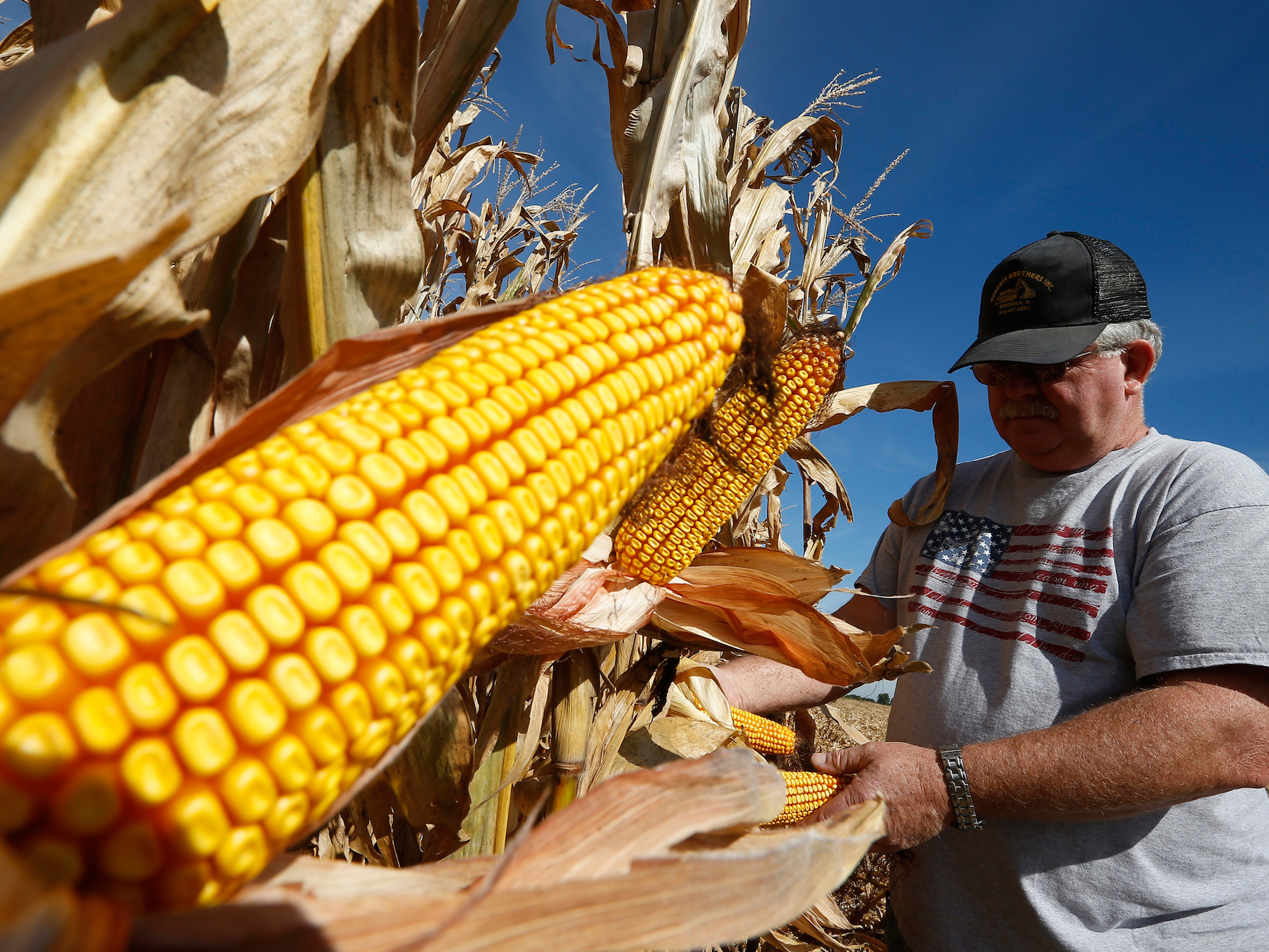- The German drugmaker and chemical company Bayer is finalizing a $66 billion blockbuster deal to gobble up the agricultural behemoth Monsanto on Thursday.
- On Monday, Bayer said it would drop Monsanto’s 117-year-old title.
- The name drop appears to be part of a strategic move geared at distancing the colossal new company from negative publicity surrounding Monsanto and genetically modified organisms.
The German drugmaker and chemical company Bayer is finalizing a $66 billion blockbuster deal to gobble up the agricultural giant Monsanto on Thursday.
In a statement on Monday, Bayer said it planned to drop Monsanto’s 117-year-old title and would henceforth be known only as Bayer.
“Bayer will remain the company name. Monsanto will no longer be a company name,” the company said. “The acquired products will retain their brand names and become part of the Bayer portfolio.”
The name drop appears to be part of a strategic move geared at distancing the new behemoth from negative publicity surrounding Monsanto and genetically modified organisms.
First announced in September 2016 as part of a move designed to boost agricultural research and innovation, the merger will be the largest acquisition in Bayer's history and double the size of its farm business.
Distancing itself from the Monsanto label

You can't utter the name Monsanto in public and not be met with at least one stink eye.
For decades, the company has been met with public outrage and disgust linked to its history of controversial dealings with farmers and its standout role in popularizing GMOs. This spring, Monsanto landed a spot on a well-known list of the 20 most hated companies in America.
The decision to drop the Monsanto moniker, then, is no huge surprise.
On a call with reporters on Monday, Liam Condon, the head of Bayer's crop-science division, said Monsanto had "actually itself considered changing its name" at one time, but elected "not to do that, apparently for cost reasons."
Still, Condon said, "it was an issue for some time for Monsanto management ... to try to improve the Monsanto brand."
"We're extremely proud of all we've accomplished as Monsanto and are eager to continue to accelerate innovation in agriculture as we look forward to a future under Bayer," Christi Dixon, Monsanto's public-relations lead, said in a statement to Business Insider, adding that in the interim, while Monsanto operates independently of Bayer, "it will be business as usual for us, including our company name."
Monsanto is also moving to invest more deeply in advanced tools for gene editing, a process that can be capitalized on for agricultural purposes to make cheaper but higher-quality produce. Many companies are moving away from tweaking crops' DNA with GMOs and other crude methods of genetic modification in favor of more precise techniques like Crispr.
In March, Monsanto put $125 million behind the gene-editing startup Pairwise, a company whose founder, Haven Baker, told Business Insider he aimed to bring the first fruit tweaked with Crispr to grocery-store shelves - a development he expects in five to 10 years. Tom Adams, who was Monsanto's vice president of global biotechnology, left to become the CEO of Pairwise this spring.

